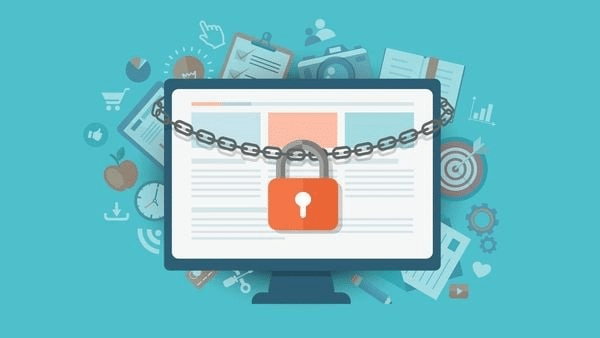What to do if you're a fraud victim

Discovering you've become a victim of fraud can be incredibly distressing. The realization that your personal information has been misused prompts a whirlwind of emotions and questions about how to restore your security and financial health.
This comprehensive guide provides steps for fraud victim help, ensuring that you know exactly what actions to take to mitigate damage and safeguard your future. From immediate reactions to preventive measures, we cover all you need to navigate through this challenging time.
Remember, regaining control after such an incident is entirely possible with prompt and measured responses. Let's empower you to move forward with confidence.
Immediate Steps to Take
Once you realize your personal information has been compromised, swift action is necessary. Report the fraud to your bank or credit card issuer immediately to prevent further misuse of your accounts. This is a crucial first step in fraud victim help.
Next, contact the three major credit reporting agencies—Equifax, Experian, and TransUnion—to place a fraud alert on your credit reports. This alert signals to creditors that they should take extra steps to verify your identity before issuing credit in your name.
It's also advisable to file a report with your local police department. While they may not be able to investigate every case of fraud, having an official report can be helpful for documentation purposes.
Last, reach out to the Federal Trade Commission (FTC) via their website or hotline. The FTC doesn't resolve individual cases of fraud, but filing a report with them helps monitor fraud trends and can assist law enforcement in tracking down fraudsters.
Securing Your Accounts
Change the passwords and PINs for all your online accounts, especially those related to banking or payment services. Use strong, unique passwords for each account to enhance your security.
Review all your financial transactions for unauthorized activity. If you spot any, report these to your financial institution immediately. They can help reverse wrongful charges and protect your assets.
Consider signing up for credit monitoring or identity theft protection services. These can provide alerts about suspicious activities related to your personal information, giving you an additional layer of security.
Documenting and Monitoring Your Credit
Keep detailed records of all your conversations and correspondence with financial institutions, law enforcement, and credit agencies. Maintain a file of all incident reports and any other relevant documents to assist with future claims or disputes.
Regularly review your credit reports for signs of fraudulent activity. You're entitled to a free credit report from each of the three major credit reporting agencies once per year via AnnualCreditReport.com.
Be vigilant for signs of identity theft, such as bills for items you didn't purchase or calls from debt collectors about accounts you didn't open. Early detection is key to minimizing damage.
Developing a Recovery Plan
Create a recovery plan that outlines each step you need to take to rectify the fallout from the fraud. This may include disputing unauthorized transactions with your bank, closing and reopening accounts, and dealing with any legal implications.
Seek professional advice if the situation warrants it. You may require legal assistance to navigate complex cases of fraud or identity theft.
Preventing Future Incidents
Going forward, you can take several steps to protect yourself from becoming a victim again. This includes regularly updating passwords, not sharing personal information over insecure channels, and being cautious about unsolicited requests for your data.
Regularly check your financial statements and be alert to any abnormal activities. Also, consider using two-factor authentication for additional security on your online accounts.
{FAQ}
{FAQ_ITEM}
{FAQ_TITULO}What should I do first if I notice unauthorized transactions on my account?{/FAQ_TITULO}
{FAQ_CONTEUDO}Immediately report the unauthorized transactions to your bank or card issuer. Then, place a fraud alert on your credit reports and file a report with the FTC for comprehensive fraud victim help.{/FAQ_CONTEUDO}
{/FAQ_ITEM}
{FAQ_ITEM}
{FAQ_TITULO}How do I place a fraud alert on my credit report?{/FAQ_TITULO}
{FAQ_CONTEUDO}Contact one of the three major credit reporting agencies (Equifax, Experian, or TransUnion) directly to request a fraud alert. You need to contact only one; they're required to inform the others.{/FAQ_CONTEUDO}
{/FAQ_ITEM}
{FAQ_ITEM}
{FAQ_TITULO}Can I recover financially from being a victim of fraud?{/FAQ_TITULO}
{FAQ_CONTEUDO}Yes, by acting quickly and following the appropriate steps for fraud victim help, you can minimize the damage and begin to recover your financial health. Secure your accounts, monitor your credit, and develop a strong recovery plan.{/FAQ_CONTEUDO}
{/FAQ_ITEM}
{/FAQ}
Regaining Control: A Path Forward for Fraud Victims
Being targeted by fraudsters can be a deeply upsetting experience, shaking your sense of security. However, by taking decisive action and following the outlined steps for fraud victim help, you can protect your personal and financial information, prevent further loss, and start on the path to recovery.
Remember, the key is to act swiftly and methodically. With the right measures, you can navigate this challenging experience and emerge stronger on the other side.
Never hesitate to seek professional advice if the situation becomes overwhelming. You're not alone on this journey to reclaim your security and financial well-being.
With vigilance and informed action, you can safeguard against future threats and ensure that your financial future remains secure.

Related